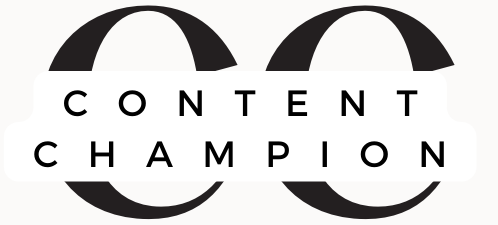Integrative medicine blends the best of both worlds: modern Western medicine and time-tested traditional healing practices. This approach focuses not only on curing disease but also on promoting overall wellness by addressing the mind, body, and spirit. It emphasizes the importance of a strong, respectful relationship between patient and practitioner, using all appropriate therapeutic techniques to support optimal health and healing.
What Is Integrative Medicine?
Integrative medicine (IM) combines conventional treatments like pharmaceuticals and surgery with alternative therapies such as:
- Acupuncture
- Herbal remedies
- Mind-body practices (e.g., yoga, meditation)
- Nutrition and lifestyle counseling
Rather than treating just the symptoms, integrative medicine seeks to identify and resolve the root causes of illness. It recognizes the individual as a whole and respects the body’s natural ability to heal.
How Integrative Medicine Is Practiced
Combining Treatment Modalities
Doctors who practice integrative medicine may prescribe standard medications while also recommending supportive therapies. For example:
- A patient with hypertension may receive a prescription but also be advised to try meditative breathing, diet changes, and acupuncture.
- A cancer patient might undergo chemotherapy while also receiving yoga, guided imagery, massage, and acupuncture to relieve pain and nausea and improve emotional well-being.
This holistic approach enhances the effectiveness of traditional treatments while improving the patient’s overall quality of life.
Diverse Training of Integrative Medicine Doctors
Integrative medicine can be practiced by professionals from different medical backgrounds:
- Osteopathic doctors (DOs) receive traditional medical training plus additional instruction in the musculoskeletal system and hands-on body manipulation.
- Naturopathic doctors (NDs) are trained in conventional medical sciences as well as nutrition, botanical medicine, lifestyle counseling, and Eastern therapies.
- Traditional Chinese Medicine Practitioner (TCM) are familiar with Chinese herbology and acupuncture.
Regardless of background, IM practitioners take extra time to understand a patient’s unique health story, including emotional, cultural, and spiritual influences.
The Integrative Medicine Experience
Visiting an integrative medicine doctor is a unique and transformative experience. In addition to reviewing your medical history, they may ask questions about:
- Your daily lifestyle habits
- Stress levels and emotional health
- Religious or spiritual background for understanding sources of strength
- Relationships and social support networks
This in-depth approach fosters a deeper patient-practitioner bond and leads to a more personalized care plan that meets not just medical, but also emotional and lifestyle needs.
The Role of Acupuncture in Integrative Medicine
Acupuncture is one of the most popular and well-researched components of integrative medicine. It involves the insertion of thin needles into specific points on the body to stimulate healing and restore energy balance.
Conditions Acupuncture Treats Effectively
Acupuncture has been shown to help with a wide range of conditions, including:
- Chronic pain (back pain, neck pain, arthritis, joint pain)
- Migraines and tension headaches
- Digestive issues (IBS, nausea, acid reflux)
- Anxiety, depression, and stress-related disorders
- Insomnia and sleep disturbances
- Menstrual cramps and menopause symptoms
- Allergies and sinus congestion
- Chemotherapy-induced nausea and fatigue
Scientific research continues to validate acupuncture’s ability to reduce inflammation, promote circulation, release endorphins, and regulate the nervous system.
The Pacific College of Oriental Medicine Acupuncture schools offer clinics with students and teachers alike in San Diego, Chicago and New York.
Preventative Health and Maintenance
Acupuncture isn’t only for treating illness—it’s a powerful preventative maintenance tool. Regular sessions can:
- Boost immune function
- Balance hormones
- Improve energy and mood
- Promote restful sleep
- Support digestion
- Reduce stress and anxiety
Many people use acupuncture proactively, much like visiting a chiropractor or getting a massage, to stay well and prevent illness from developing in the first place. Visit Cheng’s Oriental Clinic in Denver for top level acupuncture and chinese herbs.
Using FSA Accounts to Cover Integrative Health Services
One of the most practical advantages of integrative care—particularly acupuncture—is that it’s often covered under Flexible Spending Accounts (FSAs) or Health Savings Accounts (HSAs).
If your employer offers an FSA:
- You can use pre-tax dollars to pay for acupuncture treatments, making it more affordable.
- Acupuncture is generally eligible when prescribed for a specific medical condition (such as chronic pain or anxiety), and a doctor’s recommendation or letter of medical necessity may be required.
- Preventative care through acupuncture may also qualify, especially if part of a medically recommended wellness plan.
Check with your benefits provider to confirm coverage details.
A Path to Whole-Person Healing
Integrative medicine isn’t just a trend—it’s a patient-centered approach to lifelong health. Whether managing a chronic illness or simply looking to improve wellness and resilience, integrative care offers personalized solutions that treat the whole person, not just the disease.
From acupuncture to nutrition, from herbal therapy to emotional support, this form of care empowers individuals to take an active role in their health journey—and it’s more accessible than ever through employer-supported benefit plans.
